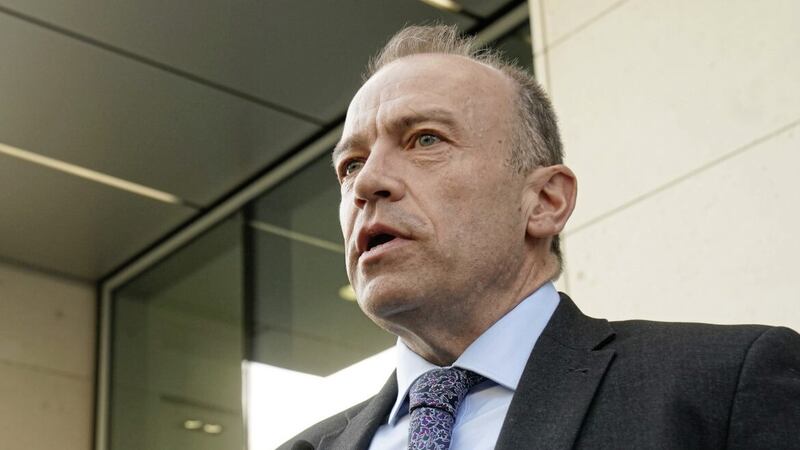“I’ll listen to better dogs”. That was the response of Chris Election-Hazard when asked why he had ignored the ‘dogs in the street’ (particularly the ones working in the media) telling him that the DUP would not roll over to have their tummies tickled just because he had threated them with an early election.
The party has no fear of an election: and while there is no great confidence about nudging past Sinn Féin into largest party status, with dibs again on the first minister role, it was confident of increasing its mandate with more votes and even a couple more seats.
The secretary of state knows how the DUP operates. He was a key player in the ERG (as was Steve Baker) all the way through the confidence and supply deal the DUP struck with his party in July 2017. He knew the hurt felt when the party believed itself betrayed by Theresa May and Boris Johnson, as well as being let down by Liz Truss and Lord Frost (when he was the UK’s chief negotiator). He must have known that Jeffrey Donaldson was never going to take an IOU in exchange for rebooting the executive, especially after Baker told the DUP to ‘choke it down’ and trust the government to look after its interests.
And if he thinks that reducing MLA salaries by £14,000 is going to make the DUP change its mind, then he needs to think again. Any sign of weakness, any hint that the DUP would be prepared to compromise in exchange for hanging on to salaries, would simply see another tranche of its votes transferring to the TUV. At this point the only thing that might make the DUP change its mind would be polling evidence (and a LucidTalk poll will be published over the weekend) that its popularity ratings had risen significantly and increasing numbers of DUP/TUV voters were prepared to soften on the protocol.
There may be some evidence of votes returning from the TUV, but I would be incredibly surprised (which happens occasionally) if there was a flood of support in favour of rebooting the assembly in the continuing absence of any resolution to the protocol dilemma. I think there was hope in the NIO that the impact of inflation, energy increases, mortgage hikes, food prices and the cost-of-living crisis would be enough to persuade unionists to demand a return of an executive to deal with it all: but again, I’d be surprised if we saw evidence of that.
There is a tendency for NIO ministers to pay undue attention to those dogs barking about the importance of the executive; trying to convey the impression that we lived in some sort of consensual, power-sharing utopia when it was up and running. We didn’t. Executives stumbled from one crisis to another and from one stand-off to another. The mountain of economic/societal problems we faced when the first assembly was elected in June 1998 is actually higher than it was. Whole swathes of prioritised issues remain unaddressed: while most of those which were addressed ended in a slurry of fudge.
I don’t deny that a functioning assembly and executive is essential (it’s one of the reasons I voted for the Good Friday Agreement): but nor do I buy into the happy-clappy delusion that rebooting an executive right now would make much of a difference to the everyday lives of most people in NI. And that’s because we’ve reached the bizarre point at which just having an executive (even if it’s no more than a Borgia-style tea party) is hailed as evidence that all is well. An executive for the sake of an executive is pointless. An executive in place just to encourage President Biden to drop into the birthday celebrations in April would be a farce.
During the last hiatus, January 2017-January 2020, I wrote a number of pieces urging the parties to devote themselves to detailed negotiations about the sort of reforms which would prevent serial collapse and make it easier to follow through on programme for government priorities. Create the circumstances, in other words, in which the executive ‘could withstand contact with the next crisis rather than tip into another quagmire.’ Events since January 2020 would suggest—indeed, scream—that we’re nowhere near that point.
Mind you, it hasn’t stopped people talking about the need for reform. So, let me offer some advice. Let all of the parties appoint two or three people to attend below-the-radar weekly discussions and see if it is, in fact, possible to home in on a few key areas where reform could make life a great deal easier for all of them. Let’s face it, what’s the point of returning to the same-old, same-old executive (assuming that’s even possible anymore) and expecting things to be different?








